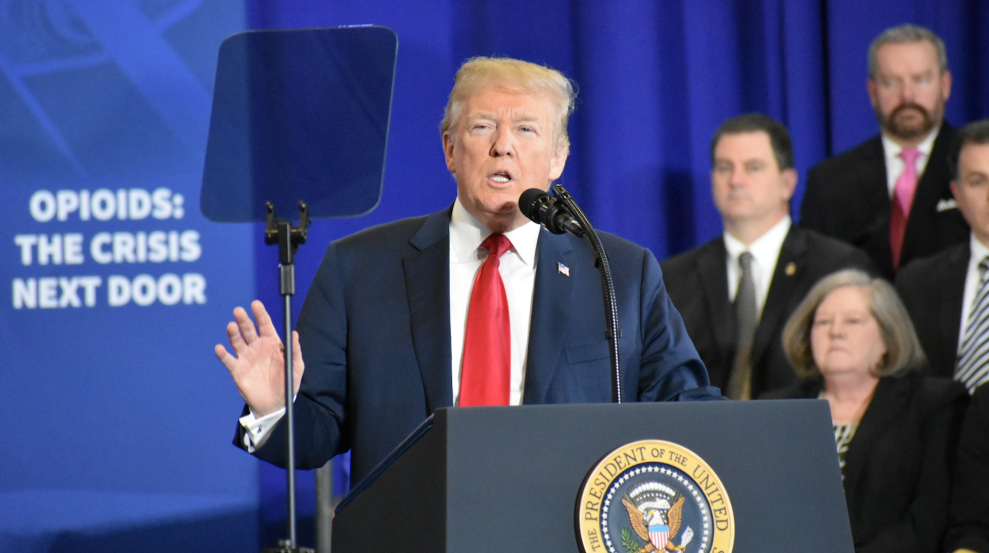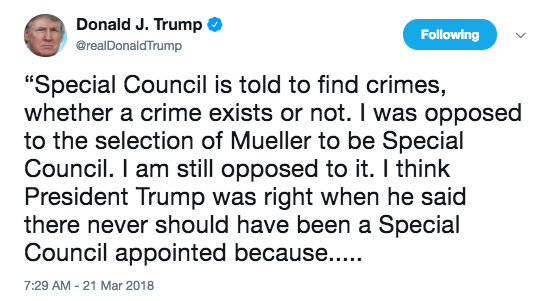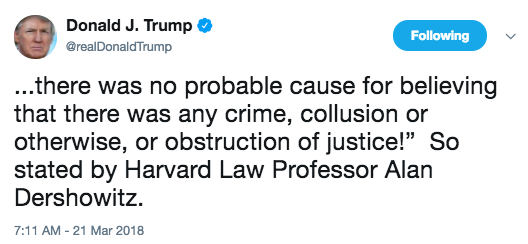
Kyle Mazza/ZUMA
This weekend marked the first time President Donald Trump directly took aim at special counsel Robert Mueller, in a series of Sunday morning tweets that prompted stern warnings from congressional Republicans that a continuation of such attacks would signify “the beginning of the end” for his presidency.
After a two-day break, Trump on Wednesday ignored the advice and resumed his attacks, this time quoting frequent Fox News contributor Alan Dershowitz to cast doubt on Mueller’s ongoing investigation. In doing so, Trump made multiple typos, including spelling “counsel” wrong three times and “whether” incorrectly once. (The president appears to have been watching a Tuesday segment of American Newsroom in which Dershowitz also suggested Mueller’s investigation was “trying to criminalize political differences behind closed doors of a grand jury.”)
Trump’s new approach of going after Mueller—directly or using someone else’s words—comes amid mounting concern that the president is seeking to remove the special counsel from the investigation as it moves closer to scrutinizing the president’s financial ties and family members—steps Trump had previously described as the “red line” that could spur him to intervene in the probe. (Last week, it was reported that Mueller had subpoenaed the Trump Organization for documents on Russia.) In January, the New York Times reported that Trump had actually ordered the firing of Mueller last June but gave up when White House counsel Don McGahn threatened to quit.
Despite the ramped-up attacks, Republicans have shown no interest in introducing legislation to protect the probe. House Speaker Paul Ryan on Tuesday laughed off such concerns, telling reporters that he had received “assurances” that Trump would leave Mueller alone. He refused to say who in the White House gave him these assurances.


















